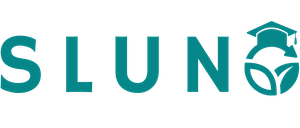


Sustainable lifestyle model is an essential component of the Sustainable University Concept. Youth, as the most flexible and adaptable category, are the best link to the widespread application of the sustainable lifestyle model in society. Universities and educational institutions, as hubs for youth, play an important role in achieving and promoting Sustainable lifestyle model as a component of the broader concept of the Sustainable University.
The aim of the project is to promote the concept of SULM among young people and educational institutions in Central Asia.
The project will be implemented in 2022-2023 years, i.e. project period: October 2022- June 2023.
The project was implemented by Kazakh-German University in close partnership with Ministries of Education of Central Asian countries as well as the UNEP office for Central Asia in Almaty from October 2022 to June 2023.
The Central Asian universities were invited to fill in a survey would give them ideas on potential actions they could undertake to enhance some elements on the way to sustainability.
The Experts Assessment Proceedings were drafted to ensure equal treatment of all the participants.
The Expert Assessment Panel consists of two experts, including one expert from UNEP.
Each of the experts signs a contract that includes a confidentiality clause.
The procedure is as follows:
STEP 1: Each of the Surveys is assessed individually and independently by two appointed experts.
STEP 2: Any differences between the two assessments are discussed between the two experts.
STEP 3: Final assessment is based on the opinion agreed by both experts.
STEP 4: Final assessment is sent to the participant who is given 10 days to send any remarks.
STEP5: Remarks are considered, answered and if recognised by both experts the assessment is updated accordingly.
STEP 6: Final assessment is published.
The scoring is as follows:
Questions 1.1 – 1.5, 3.1, 5.1, 7.1, 9.1 are reference questions – no scores are assigned.
Questions 1.6 – 9.5 (With the exception of the questions listed above):
The winner of the contest is the university that has scored the most points.
Ex-aequo position is possible.
You can read the questionnaire in detail by downloading the file below.